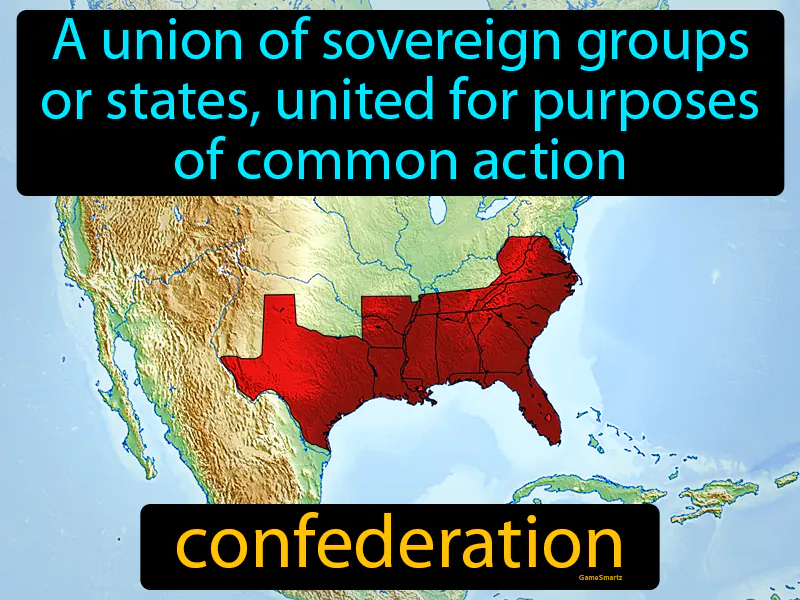Confederation
Confederation: Easy to understand
During the period of New Global Patterns from 1800-1915, confederations were important as they allowed separate states or groups to unite for common goals, such as defense or economic cooperation, while maintaining their independence. This concept responded to the need for collaboration without sacrificing sovereignty, often seen in regions with diverse cultures or political systems. For example, the German Confederation was a loose association of German states that coordinated policies and defense before unifying into a single nation. Today, confederation still matters in organizations like the European Union, where countries work together on issues like trade and security but remain independent nations. This affects everyday life as cooperative agreements can lead to benefits like easier travel, shared resources, and collective problem-solving in global challenges.

Practice Version

Confederation: A union of sovereign groups or states, united for purposes of common action confederation. A confederation is a group of states or nations that join together for common goals while maintaining their independence.